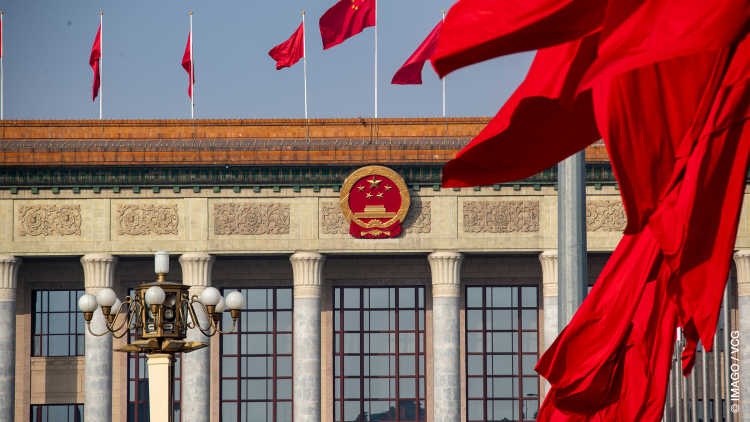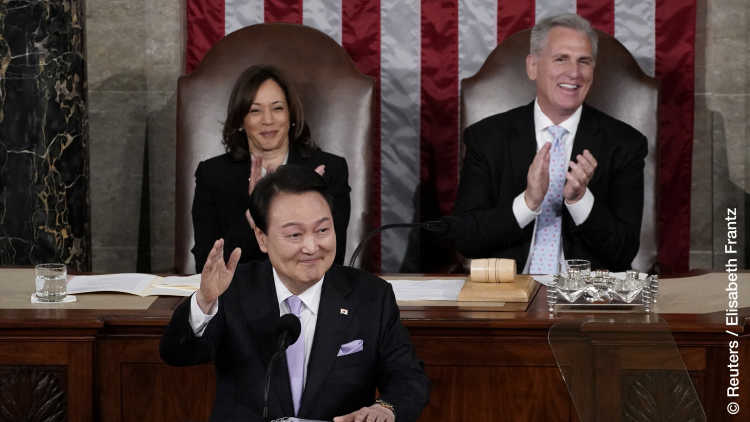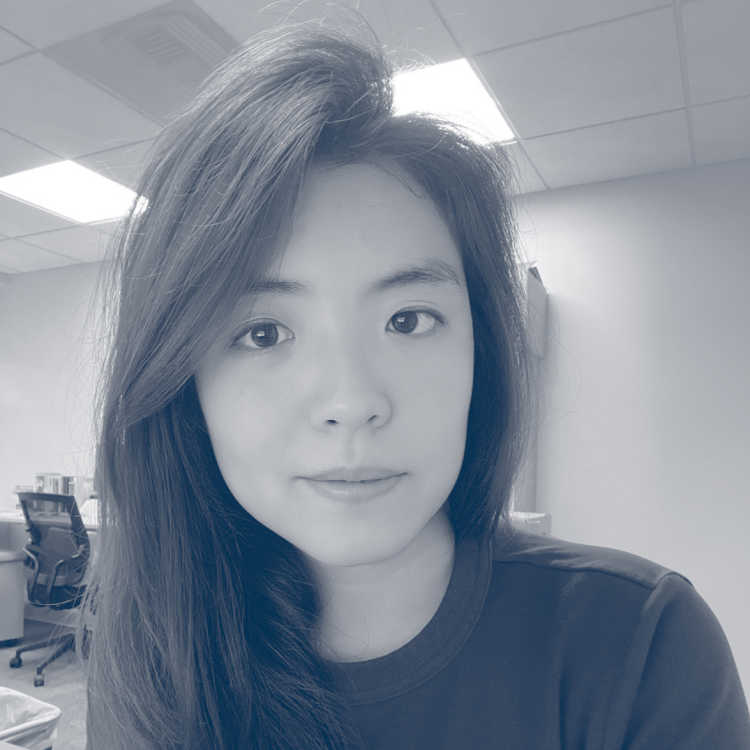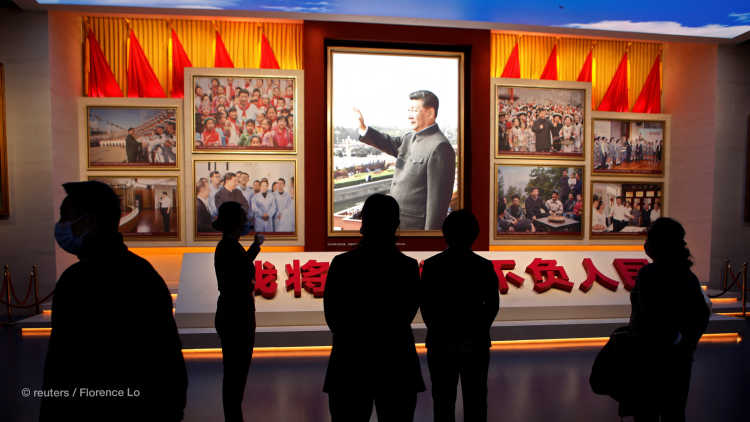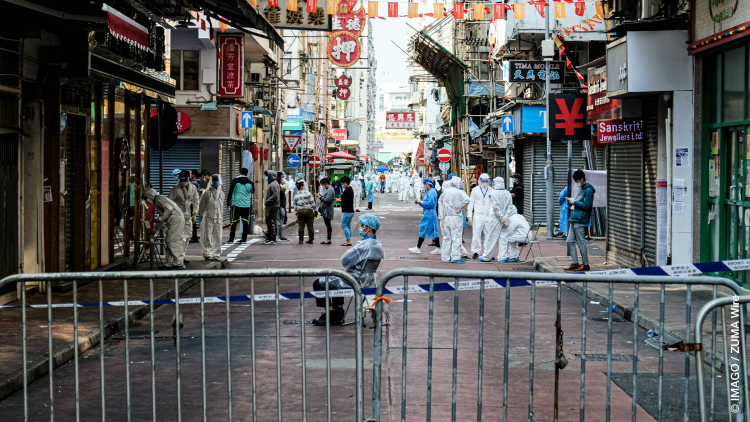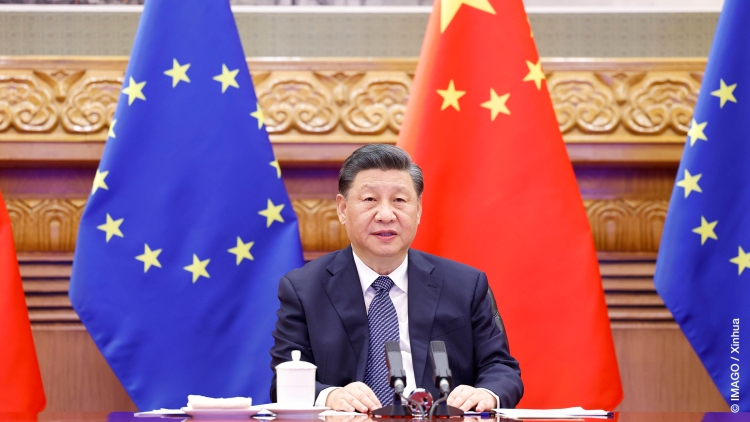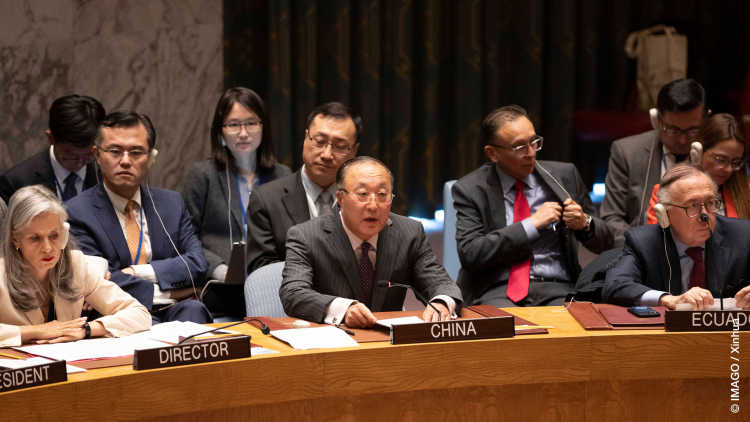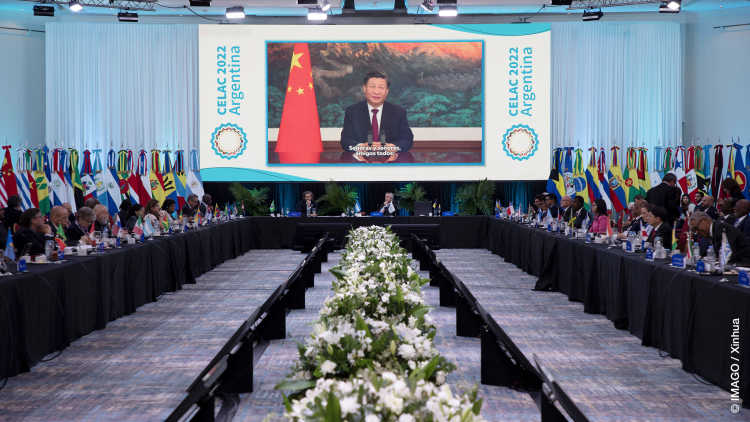- Startseite
- Veranstaltungen
- Konferenzen und Workshops
- GIGA China Series
Lecture Series
GIGA China Series
Datum
22.03.2024
The GIGA China Series aims to foster a community of knowledge seekers interested in unravelling the complexities of China’s politics, society, and global impact. Speakers will present their current research findings on today’s China, ranging from domestic governance and societal trends to geopolitics and international relations.
Consistent with the GIGA’s global approach, we strive to present research combining in-depth area expertise with comparative analytical lenses and global perspectives, drawing from the theoretical and methodological resources of diverse fields such as Political Science, Anthropology, Religious Studies, and Philosophy, and hailing from different regional scholarly traditions and communities around the world. During the talks, the speakers will present their research and afterwards the audience can comment on this.
Organisers: Dr. Sinan Chu Dr. Esther Song Askan Weidemann Dr. Sebastian Biba
Upcoming Events
Previous Events
External Support, Internal Strength, and the Strategy of Minority Repression in Mao's China
Friday, 22 March 2024 | 11:00 a.m.‒12:15 noon (CET)
Why do states, when facing ethnic separatist threats, sometimes opt for settler colonization while other times use extreme violence like genocide? Existing theories offer limited insights into variations in repressive choices. We propose that external support and a minority’s separation potential influence state choices. If external powers support a domestic minority group with weak insurgency capabilities, states favor a gradual approach, like internal colonization, to solidify control over minority-concentrated territories. However, when a minority group has strong insurgent capabilities and receives external support, the secession threat intensifies. This urgency pushes states towards immediate, drastic measures like genocide for territorial control. We examine our theory using original county-level personnel and demographic data of China's minority-concentrated regions. Findings based on an analysis of China’s settler colonization and state violence from 1964 to 1982 support our theoretical arguments. Our findings shed new light on China's nation-building, state repression, and ethnic politics of the Mao era.
Speaker: Dr. Chuyu Liu is an assistant professor in Political Science at the University of Amsterdam. He holds a Ph.D. in Political Science from the Pennsylvania State University. He was a postdoctoral fellow at the Paul H. Nitze School of Advanced International Studies (SAIS) of Johns Hopkins University. His research focuses on ethnic conflict, the political economy of development, and East Asian security. His current research examines the political economy of China’s Belt and Road Initiative. His work has appeared in Energy Policy, Environmental Politics, International Studies Quarterly, the Journal of Comparative Economics, the Journal of East Asian Studies, Security Studies, and The China Review.
Moderation: Dr. Sinan Chu is a Research Fellow at the GIGA.
Xinjiang in Central Asia: Trade, Refugees, Loans, and Propaganda Across the Former Sino-Soviet Border
Tuesday, 30 January 2024 | 11:00 a.m.‒12:15 p.m. (CET)
The rising influence of China on Central Asia has long been recognized. But in the last years the impact of Chinese policies in the region directly bordering Central Asia, Xinjiang Uyghur Autonomous Region, has become particularly significant in Kyrgyzstan and Kazakhstan. Based on fieldwork in Central Asia 2021-2023, this talk traces these cross-border connections including shifts in trade patterns, the impact of testimonies of survivors from Xinjiang’s re-education camps, propaganda efforts, state violence against activists, and the recent agreements on visa-free travel between China and Central Asia.
Speaker: Dr. Rune Steenberg is a Senior Researcher at Palacky University Olomouc, Czech Republic. As an anthropologist, Dr. Steenberg specializes in Xinjiang and the Uyghurs, and has researched and published extensively on kinship, economy, narratives, and mass incarceration. His works can be found in journals such as Critical Asian Studies, Central Asian Survey, and Asian Ethnicity, as well as edited volumes such as Routledge Handbook of Asian Borderlands and Xinjiang in the Context of Central Eurasian Transformations. In recent years, he has also worked as a Uyghur interpreter for asylum seekers, activists, journalists, and human rights organizations. He is currently a principal investigator of the EU-funded project "Remote Ethnography of Xinjiang Uyghur Autonomous Region".
Moderation: Dr. Sinan Chu is a Research Fellow at the GIGA.
Cultivating a Good Muslim: Islamic Education, State-Building, and the Making of Chinese Muslims
Monday, 18 December 2023 | 3:00‒4:15 p.m. (CET)
This talk explores the multifaceted role of Islamic education as a tool for collective-identity construction within the context of China’s nation-building efforts, with a specific focus on the Hui Muslim community. Recognising the imperative of a shared national identity, the talk presents the ways in which the Chinese state strategically employs Islamic education to shape and mould its “good citizens” among the Hui Muslims. The investigation begins with a concise historical overview, unravelling the circumstances that gave rise to Islamic education in China and its initial trajectory. The talk then traces the evolution of Islamic education from its inception to contemporary times in China, detailing the historical and sociopolitical factors that influenced its growth there. Through a nuanced analysis, the study scrutinises how the Chinese state leverages Islamic education to align religious teachings with the overarching objectives of nation-building. This involves an examination of educational policies, curriculum structures, and institutional frameworks designed to nurture the harmonious co-existence of Islamic values with the broader narrative of Chinese identity. Furthermore, the talk focuses on the transformative phase of modern reforms in Islamic education, exploring the ways in which these reforms align with the broader goals of the Chinese state in shaping a cohesive national identity. It investigates the interplay between tradition and modernity in the context of Islamic education, shedding light on how the state navigates the preservation of cultural and religious heritage while fostering a sense of allegiance to the Chinese nation.
By adopting an interdisciplinary approach that combines historical analysis, educational policy studies, and sociological perspectives, the talk contributes to a nuanced understanding of the dynamic relationship between Islamic education, state-building, and the construction of a distinct Chinese Muslim identity. It provides insight into the complexities of cultural and religious integration within the fabric of a rapidly evolving Chinese society.
Speaker: Dr. Gang Li is a Research Associate at the Erlangen Centre for Islam and Law in Europe (EZIRE), FAU Erlangen-Nürnberg.
Moderation: Dr. Sinan Chu is a Research Fellow at the GIGA.
Adresse
Online Event
Sprache
Englisch
